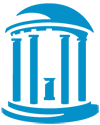Having read Peter Calladine's response to my "Let the Games Begin" article (Nickols, 2000), I am pleased to have this opportunity to respond. Mr. Calladine asserts that my article contains "a number of inaccuracies" and goes on to say that his explanation of terms might be useful in clearing them up. Mr. Calladine is correct, there are several inaccuracies in the article and his comments are indeed useful in clearing them up. However, from my perspective, these "inaccuracies" do not do damage to the substance of my article; I leave it to Technology Source readers to be the judges.
The major problem is tied to my use of "accreditation." In one instance, I referred to a Royal Charter as the equivalent of accreditation, which Mr. Calladine noted is not the case. I did confuse accreditation with the authority to confer degrees and I make note of that as a lesson learned. (Having recently and successfully gone through the accreditation process as a sitting member of the advisory council to a school of business, I am particularly red-faced on this score.) At another point, I implied that the Association of Business Schools is an accrediting body, which Mr. Calladine points out is incorrect. However, as you will see, I think we're dealing here with a not-so-inconsequential cultural difference.
In the U.K., the accrediting agency for business schools is the Association of MBAs (AMBAs). Membership in this association is open to graduates of, or students in, schools the association has already accredited. In the facts section of the AMBA web site, it indicates that individual memberships totaled 8,400 as of 1996. (No more recent figures are provided.) Corporate memberships are also available and the AMBA web site states that AMBA has at present 73 corporate members. (The date of this figure is not given.) In the U.K., then, it seems the accrediting agency is an association of students and graduates, not institutions. Here in the U.S., the accrediting agencies are associations of the educational institutions themselves, not their students or graduates. In doing my research, I mistakenly assumed that both AMBA and the Association of Business Schools were accrediting agencies. Thanks again to Mr. Calladine for pointing out my error.
Return visits to the Web site for the Association of MBAs on February 10 and February 14, 2000, reveal that the Association has accredited 47 programs in 32 of 109 institutions in the U.K. and another 20 programs in 18 European institutions. The Web site for the Association of Business Schools lists 97 institutions as members. All but two of the institutions with programs accredited by the Association of MBAs are also members of the Association of Business Schools. Given this near total overlap in the U.K., the importance of Mr. Calladine's distinction between accrediting institutions and accrediting programs eludes me.
In this same vein, Mr. Calladine also points out that although Heriot-Watt holds a Royal Charter, its MBA programs are not accredited by the Association of MBAs. Nowhere in my article did I say they were. In his favor, I suspect he intended fully correcting any misunderstanding that might have developed based on my confusing a Royal Charter with accreditation. But in any event, these are in my view minor points that have little to do with the main thrust of my article, (i.e., that innovative, online MBA programs like Heriot-Watt's constitute a "disruptive technology" and present what could prove to be a serious threat to the established order),and so I will plead guilty to a misdemeanor and move on.
Regarding my reference to the Open University Business School as "London's Open University," I do indeed stand corrected. My only defense is that in conversations about that institution, I hear it referred to regularly as "London's Open University." The campus is actually about 25-30 miles outside London, in Milton Keynes. I will make it a point to correct myself and others when and as I hear that term used again in the future. Regarding my comment about admission to the Open University being restricted to citizens of the countries making up the European Union (EU), I rechecked my notes and sources and found my error. According to Bears' Guide to Earning College Degrees Non-traditionally, some of the Open University's courses do indeed "require that the applicant be a resident of the U.K. or other European country" (p.104). My notes failed to reflect this partial restriction, and so I mistakenly asserted that it applies to all courses. My apologies for this error.
Mr. Calladine, then, is correct; my article is marred by "a number of inaccuracies" and I thank him for bringing them to our attention. I can't speak for others but, for myself, clearing them up has indeed been a useful exercise. In closing, I do have one question for Mr. Calladine. In his letter, he indicates that the Association of MBAs accredits programs at 35 UK and 20 continental European schools. His association's Web site, as noted above and by actual count, lists 32 U.K. and 18 European schools. In another place, it places accredited institutions at 33 U.K. and 15 European schools. Could he be so kind at to resolve these inconsistencies? Believe me, I appreciate full well the difficulty of getting one's facts straight.
Reference
Nickols, F. (2000, January/Fenruary). Let the Games Begin. The Technology Source. Retrieved 29 February 2000 from the World Wide Web: http://technologysource.org/?view=article&id=189
card gamesmahjongmarble popper gamesmanagement gamesdownloadable gameshidden object gamesbest pc gamesshooter gamesbrick buster

